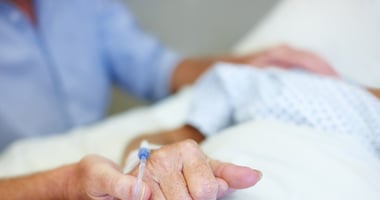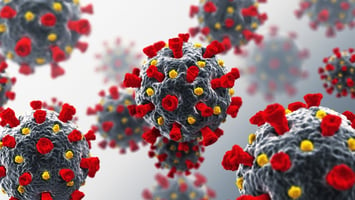Hyperactive Delirium May Be Common Among Critically Ill COVID-19 Patients

Critically ill COVID-19 patients who develop delirium are likely to become hyperactive and agitated, suggests a small study published today in the Journal of Neuropsychiatry and Clinical Neurosciences. In general, patients with delirium tend to be hypoactive, or show quiet confusion.
The study by Juan D. Velásquez-Tirado, M.D., of Clinica Universitaria Bolivariana in Medellín and colleagues involved 20 adult inpatients with COVID-19 who had delirium diagnosed by the Liaison Psychiatry Service at a hospital in Medellín, Colombia. Eighteen of these patients were in the intensive care unit (ICU) at the start of the study. A liaison psychiatrist evaluated the COVID-19 patients using DSM-5, the Delirium Diagnostic Tool-Provisional (DDT-Pro), Delirium Etiology Checklist (DEC), and Delirium Motor Subtype Scale-4 (DMSS-4).
At baseline, all the patients had multiple problems known to contribute to delirium, with the most common being organ failure (present in all 20 patients), systemic infection (present in all 20 patients), and metabolic disturbances (present in 19 patients). Half of the patients had DDT-Pro scores of 2 or less (which indicates significant cognitive and circadian impairment), including six patients with a score of 0. Patients with more severe COVID-19 were more likely to have lower DDT-Pro scores. In contrast, preexisting medical problems did not correlate with DDT-Pro scores.
According to DMSS-4 assessments, 15 of the 20 patients presented with only hyperactive delirium, whereas only three patients developed the more common hypoactive delirium and one patient fluctuated between hyperactive/hypoactive states. All the patients received frontline therapy with haloperidol or quetiapine; two patients who did not respond to haloperidol were switched to quetiapine while a third was switched to levomepromazine. Eight patients received adjunct trazodone to help with sleep.
Five of the 20 patients died, and the analysis suggested that lower baseline DDT-Pro scores was related to increased mortality risk.
“Although studies in larger samples are needed, more severe delirium on admission to ICU for COVID-19 may be a harbinger of mortality even in patients who did not have much preexisting medical comorbidity,” the authors wrote.
To read more on this topic, see the Psychiatric News article “Do Not Forget Delirium During the COVID-19 Scramble.”
Don't miss out! To learn about newly posted articles in Psychiatric News, please sign up here.






